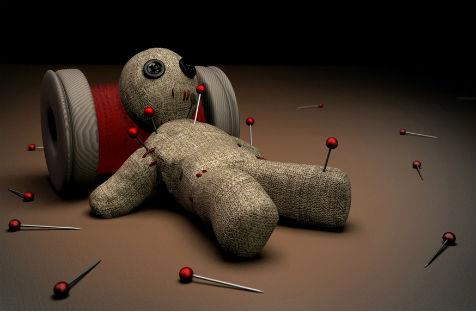The relationship between performer and critic is fuelled with a lust for revenge that would be considered psychotic elsewhere but is normal in the entertainment industry.
True criticism is essential and when coming from a pure place enriching for the interconnected relationship of performer, audience and critic. It is a truly honourable profession, if honoured. This largely depends on the humanity and the integrity of the reviewer. They are called on to be more virtuous than any in this three-way relationship because they wield power that is for the most part unchecked. The audience checks the performer and the audience can suit themselves.
For any performer, reading a review is a vexed experience. If it’s full of praise and adulation, if it’s the magnum opus five star review you have constructed so many times in day dreams then you can choose to believe it or not, sometimes with false modesty you can discount some of the laurels by saying the reviewer likes your work or is a little over the top. If it is full of criticism or worse, personal attack and bile reinforced with ecstatically cruel analogy, then you have to completely denounce it but you are never able to forget it. Never.
Reading reviews is like voodoo; it is strange medicine that can have a hold on you for many years until a more potent witch doctor can cast a more powerful, positive spell – a stellar review that releases you from the previous thrall of the stinker.
This will set you free and give you the quote for the next poster and promotional material that will be the salve to your open wound. There is only one essential requirement to expedite your cure and that is that you remain in the fray, no matter how damaged your psyche and your confidence, you must re-enter the arena.
Many performers claim to never read reviews, which is a lie, though it seems when they do read them they only read the bad ones, because these are the reviews that they can recite line for line and then profile the reviewer down to his or her place of residence, professional history (mostly frustrated performers or arts apparatchiks) and their marital status. The vanquished performer has a picture of their persecutor so they can prosecute at a later stage. This relationship is fuelled with a hatred and a lust for revenge that would be considered psychotic in wider society but is completely accepted in the entertainment industry. You see critics are tolerated and courted but never loved, never, not by anybody, ever.
The thing that pains most performers is that they don’t have a right of reply. The critic is free to write whatever they choose with no checks and balances, no accountability. If the audience happens to be in raptures on a particular night it matters little to the critic if they choose to despise the piece. The critic is not poll driven, they are maverick and independent. They are invisible and untouchable. No paper would print a performer’s reply and if they did not many would read it. So the reviewer has immeasurable potential to do harm when really they should always seek to be constructive. That would be beneficial even in theatre’s worst possible efforts.
The artistic director of my drama school was very clear: ‘You must never respond to a critic regardless of how appalling the review is.’ Joan thought the only fitting response was to be in your work and not in the critic’s realm of comment and counter comment.
I have largely followed this advice except in the open forum of social media where sly sniping should be slapped down for the pernicious bitchiness that it is, especially when it comes from somebody whom has built their reputation on criticism and then chooses to make their comments known through the swiping insouciance of the hash tag. In such cases their criticism is not criticism, it is insult and not in private conversation but directed to be heard, directed to hurt, addressed. It is boorish and pathetic, it undermines any of the established qualities and mores of true criticism.
Sloppy performance and bad theatre can put anybody in a foul mood but it is not the right of the critic to sharpen the pike of criticism and vent unreservedly, they must be considered and above all humane. What they have observed is always more difficult than what they do and the critic must accept their status is lower than that of the performer in the performance triangle.
The final succour for the injured performer is that we can do what we do without the critic but the critic needs us to do what they do. If the critic can accept this fact and still perform an ancient role with an open heart they truly are a critic and I salute them and I read them. Let’s face it, I read them all.
Lawrence Mooney’s upcoming show Dirty Laundry Live premieres on ABC2 9.30pm Thursday 16 May.





